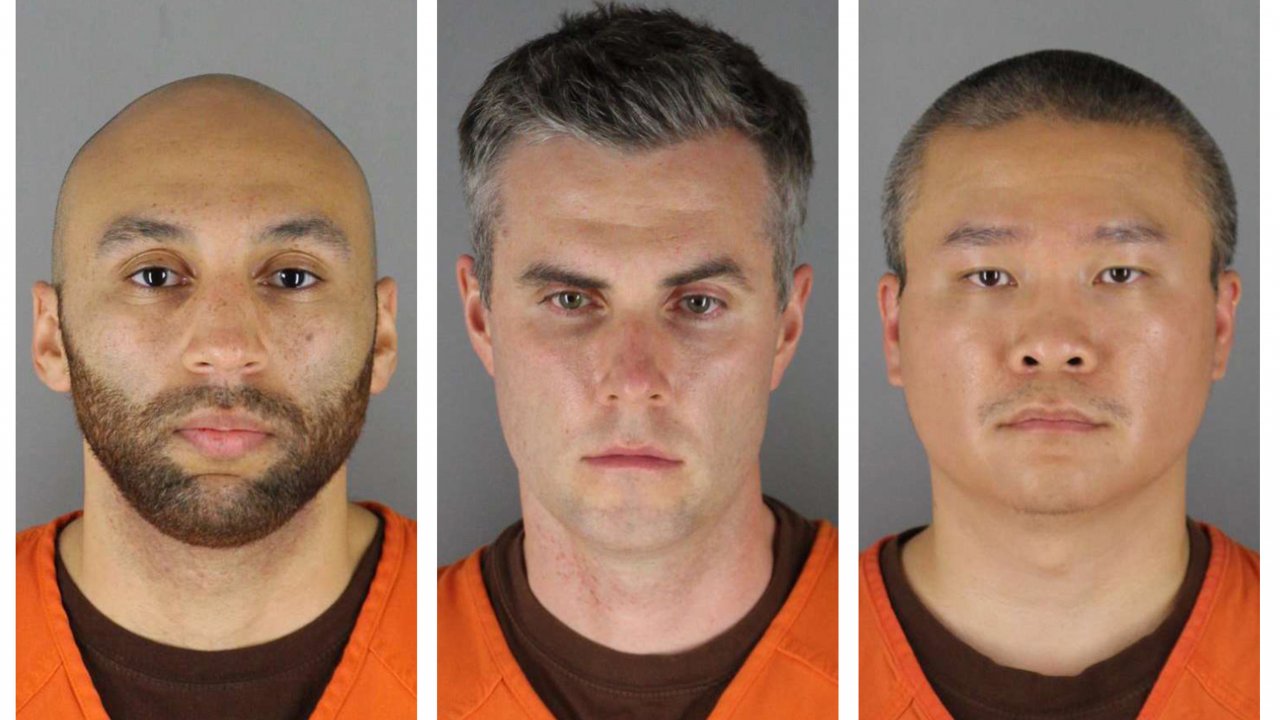Three former Minneapolis police officers have been convicted of violating George Floyd’s civil rights.
Tou Thao, J. Alexander Kueng and Thomas Lane were charged with depriving Floyd of his right to medical care when Officer Derek Chauvin pressed his knee into Floyd’s neck for 9 1/2 minutes as the 46-year-old Black man was handcuffed and facedown on the street on May 25, 2020.
Thao and Lane were also charged with failing to intervene to stop Chauvin.
The videotaped killing sparked protests in Minneapolis that spread around the globe as part of reckoning over racial injustice. Chauvin was convicted of murder last year in state court and pleaded guilty in December in the federal case.
Kueng knelt on Floyd’s back, Lane held his legs and Thao kept bystanders back.
Kueng and Lane both said they deferred to Chauvin as the senior officer at the scene. Thao testified that he relied on the other officers to care for Floyd’s medical needs as his attention was elsewhere.
Conviction of a federal civil rights violation that results in death is punishable by life in prison or even death, but such sentences are extremely rare.
During the monthlong trial, prosecutors sought to show that the officers violated their training, including when they failed to move Floyd or give him CPR. Prosecutors argued that Floyd’s condition was so serious that even bystanders without basic medical training could see he needed help.
The defense said their training was inadequate and that the officers deferred to Chauvin as the senior officer at the scene.
Prosecutors told jurors during closing arguments that the three officers “chose to do nothing” as Chauvin squeezed the life out of the 46-year-old Black man. Defense attorneys countered that the officers were too inexperienced, weren’t trained properly and did not willfully violate Floyd’s rights.
A handful of protesters stood outside the courthouse Thursday morning holding large signs, including one mocking the officers that said, “If I only had a brain, a heart, the nerve." It was decorated with pictures of the Scarecrow, Tin Man and Cowardly Lion from “The Wizard of Oz.”
All 12 members of the jury — eight women and four men — appear to be white, although the court has not released demographics such as race or age. A woman who appeared to be of Asian descent was excused Tuesday from the panel without explanation; a man who appears to be of Asian descent remains as an alternate if one of the current 12 cannot continue.
Lane is white, Kueng is Black and Thao is Hmong American.
That is a sharp contrast to the jury that deliberated the state murder case against Chauvin. That jury was half white and half nonwhite.
The federal jury pool was selected from throughout the state, which includes areas much more conservative and less diverse than the Minneapolis area from which Chauvin’s jury was drawn. Chauvin was convicted of murder and manslaughter, and later pleaded guilty to a federal civil rights charge.
Prosecutors sought to show during the monthlong trial that the officers violated their training, including when they failed to roll Floyd onto his side or give him CPR. They argued that Floyd’s condition was so serious that even bystanders without basic medical training could see he needed help.
But the defense said the Minneapolis Police Department’s training was inadequate and that the officers deferred to Chauvin as the senior officer at the scene.
Chauvin and Thao went to the scene to help rookies Kueng and Lane after they responded to a call that Floyd used a counterfeit $20 bill at a corner store. Floyd struggled with officers as they tried to put him in a police SUV.
Thao watched bystanders and traffic as Kueng knelt on Floyd’s back and Lane held his legs.
Lane, Kueng and Thao also face a separate trial in June on state charges alleging that they aided and abetted murder and manslaughter.
Additional reporting by The Associated Press.


